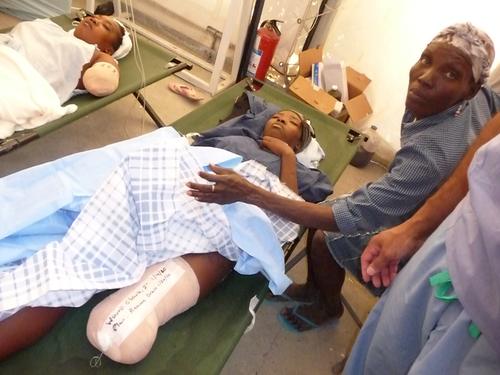Better Balance Needed Between Patient Privacy, Data Sharing
The need for more open sharing of medical data is particularly acute in times of crisis.

These are a good start, and they demonstrate some of the value of an open data ecosystem -- one that allows useful information to flow where it needs to go, using open standards in a common framework, often with biometric encryption specific to the patient. In my opinion, we need to be better able to identify each patient on the globe in a unique manner that allows evacuated victims from a pipeline fire in Tanzania to have their medical records available to their Singaporean surgeon, with rock-solid encryption based on a multi-modal biometric ID keeping their data safe in between.
Though it's not widely recognized, it is now possible to be both open and secure. Privacy regulations that, by law, thoughtlessly transcend situational boundaries without modification do a disservice to those on the forward edge trying to maximize the efficiency of urgent patient care.
From my perspective, we need to be able to collect new data, collate old data, and fuse the two. We need a unique ID for each patient, and we need a unique ID for each medical facility and provider. We need geolocation for every data element, sensible security protocols that keep ethical and legal obligations intact, and flexible international agreements that let improving technology be incorporated into subsequent iterations as we learn.
Some of that is under way, but it's not yet widely accepted, and it's not yet aligned. Encouraging examples, useful and safe, include the Open Humanitarian Initiative at NetHope, InSTEDD's work in Cambodia and Argentina, Open Data for Resilience at GFDRR within the World Bank, the Human Security Taxonomy at WWHGD.org, the Humanitarian Exchange Language (HXL), iRespond biometrics, and the OpenMRS medical record.
Some of the most vulnerable patients on the planet are losing continuity of care in transit. Outbreak epidemiology can be hamstrung by record isolation. Disaster preparedness has sometimes been compromised by our inability to locate and track critical human resources.
We can already do better, reliably and affordably, using the cleverness inherent in the technical community coupled to good bioethicists, opening patient, provider, and facility data safely and usefully. With a small relaxation in mindset and very little effort, the return on such a social investment could be substantial.
Remote Patient Monitoring: Don't let all those Fitbits fool you. Though remote monitoring technology is sound, it's still far from widespread clinical adoption. Read the new InformationWeek Healthcare Digital Issue.
About the Author(s)
You May Also Like
How to Amplify DevOps with DevSecOps
May 22, 2024Generative AI: Use Cases and Risks in 2024
May 29, 2024Smart Service Management
June 4, 2024







